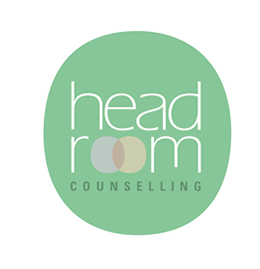FAQs
My partner thinks I need to go for counselling but I'm not sure, what do you think?
Going to counselling needs to be something that you want to do for yourself and it needs to be your decision. If there are things in your life that you are dissatisfied with, if you feel you're not coping or if there are issues or situations you feel you can't resolve and would like to be different, then those might be good reasons to have some counselling. But the issues have to be ones which you identify for yourself, that feel real for you, not issues that other people have with you and that you may feel don't ring true for you.
I've been feeling really depressed – should I talk to you or to my doctor?
It is always important to tell your doctor how you feel, as it may be that they think that you would benefit from medication or some other kind of support. But it could be helpful to talk to a counsellor too, as talking about what you feel and what is going on for you can often help you understand things more clearly or help you make changes that might help you feel better. If you were coming for counselling with me and I was concerned that you were seriously depressed and that you might be at some risk, I would ask your permission to contact your GP to let them know how you were. In that respect, counsellors work in partnership with doctors.
Will you tell anyone what I say to you?
Counselling is confidential, so what you say to me stays with me. I have regular supervision for my work, but I take cases to my supervisor anonymously, so you could not be identified. If I felt you were a serious risk to yourself or to someone else, I might feel I needed to breach confidentiality. However, I would always try to discuss that with you, and it is only in exceptional circumstances that I would breach confidentiality without your consent.
Should I tell anyone what I'm telling you or that I'm coming for counselling?
It is really up to you what you say to other people about your counselling. You don't need to tell anyone that you're coming for counselling, but it may be that there is someone you trust who you might like to talk to about some of what is going on for you. Other people find that what they explore with their counsellor is very personal and private and that they want to keep it to themselves.
What do you think you can help me achieve?
As a counsellor, I don't have an agenda about what you should achieve. What we explore in counselling will always be led by you. It may be that you come to counselling with a specific situation or set of concerns that you want to work on and so our sessions might be quite focussed. If the work is more complex, we may work on understanding the feelings you bring so that a wider range of choices about how you relate to people and circumstances in your life opens up for you.
Is there anything we can't talk about?
You can talk to me about anything that concerns you and I aim to provide a safe and supportive space for you to do that in. However, if I feel that you or anyone else is at risk of serious harm, then I may feel the need to breach confidentiality. I would always aim to discuss this with you in the first instance.
What happens if I feel coming to see you isn't working out?
If you feel that counselling isn't working out the way you expected, or just isn't working for you then please do say, since that is something which it would be really important for me to know. It might be that there's been some misunderstanding which we can address or something that can be done differently; but it may just be that I'm not the best counsellor for you. A trusting relationship is at the heart of effective counselling and I would be happy to recommend some other counsellors or types of counselling which might be more appropriate for you.
“As always, I feel so much better after seeing you”

